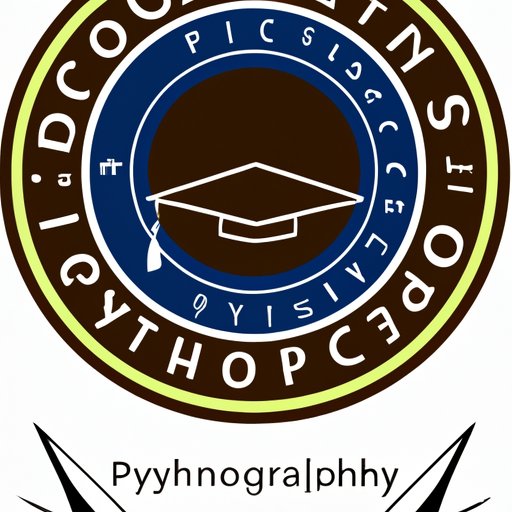Introduction
Psychology is the scientific study of behavior and mental processes. It involves researching, analyzing, and understanding how people think, act, and feel. To become a psychologist, individuals must complete a rigorous educational program, including a doctoral degree in psychology. This article explores the educational requirements for becoming a psychologist and the length of time required to complete these degrees.

Exploring the Different Levels of Training and Degrees Needed to Become a Psychologist
To become a psychologist, individuals must complete a number of different levels of training and degrees. The first step is to obtain a bachelor’s degree in psychology. This typically takes four years of full-time study. During this time, students will take courses in areas such as biological bases of behavior, cognitive-affective bases of behavior, social bases of behavior, developmental bases of behavior, measurement and research design, clinical and counseling psychology, and professional issues and ethics.
After completing a bachelor’s degree, individuals can pursue a master’s degree in psychology. This typically takes two to three years of full-time study. During this time, students will take courses in areas such as psychological assessment, psychotherapy, research methods, and statistics. Depending on the program, students may also be required to complete a thesis or other research project.
The final step is to obtain a doctorate degree in psychology. This typically takes four to seven years of full-time study. During this time, students will take courses in areas such as advanced research methods, psychopathology, personality theory, and clinical assessment. Students may also be required to complete a dissertation or other research project.
Examining the Areas of Study for Psychology Education
In order to become a psychologist, individuals must have a thorough understanding of the various areas of study within psychology. These include biological bases of behavior, cognitive-affective bases of behavior, social bases of behavior, developmental bases of behavior, measurement and research design, clinical and counseling psychology, and professional issues and ethics. Each of these areas provides an important foundation for understanding and working with people.
Biological bases of behavior focuses on the role of biology in human behavior, including genetics, hormones, and neuroscience. Cognitive-affective bases of behavior examines the way that beliefs and emotions affect behavior. Social bases of behavior looks at how people interact with one another and form relationships. Developmental bases of behavior explores how people grow and change over time. Measurement and research design deals with the development and implementation of research studies. Clinical and counseling psychology looks at the diagnosis and treatment of mental health disorders. Finally, professional issues and ethics examines the ethical standards that psychologists must adhere to when conducting research or providing clinical services.

Looking at the Length of Time Required to Complete a Degree in Psychology
The amount of time required to complete a degree in psychology depends on the level of training and degree being pursued. For example, a bachelor’s degree typically takes four years of full-time study. A master’s degree typically takes two to three years of full-time study. And a doctoral degree typically takes four to seven years of full-time study.

Understanding the Licensing Process for Psychologists
Once individuals have completed their training and obtained their degree in psychology, they must then obtain a license in order to practice. There are two types of licenses available: state licenses and national certifications. State licenses are issued by individual states, and each state has its own set of requirements for obtaining a license. National certifications are issued by national organizations, such as the American Psychological Association (APA). To obtain a national certification, individuals must pass a series of examinations.
Conclusion
Becoming a psychologist requires a significant amount of education. Individuals must complete a bachelor’s degree, master’s degree, and doctoral degree in psychology. During this time, they must gain a thorough understanding of the various areas of study within psychology, including biological bases of behavior, cognitive-affective bases of behavior, social bases of behavior, developmental bases of behavior, measurement and research design, clinical and counseling psychology, and professional issues and ethics. Once individuals have completed their degree, they must then obtain a license in order to practice. This typically involves passing a series of examinations and meeting the requirements of the state in which they wish to practice.
(Note: Is this article not meeting your expectations? Do you have knowledge or insights to share? Unlock new opportunities and expand your reach by joining our authors team. Click Registration to join us and share your expertise with our readers.)
